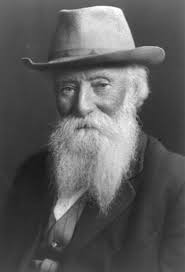John Burroughs [1837-1921] American     
Rank: 101
Author, Essayist
John Burroughs was an American naturalist and nature essayist, active in the U.S. conservation movement. The first of his essay collections was Wake-Robin in 1871.
Motivational, Nature, Failure, Happiness, Intelligence, Religion, Wisdom, Alone, Anger, Communication, Imagination, Life, Marriage, Patience, Relationship, Science, Society, Strength, Sympathy, Travel, Work |  |